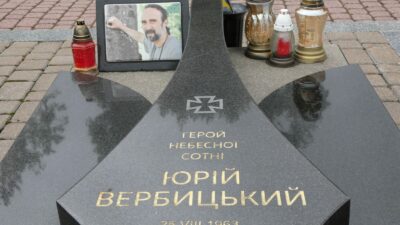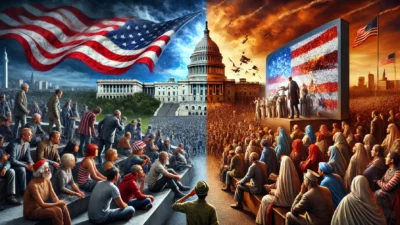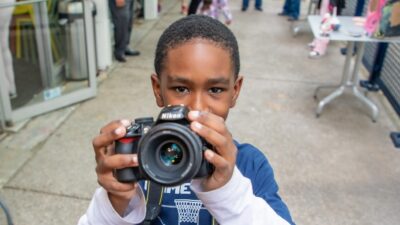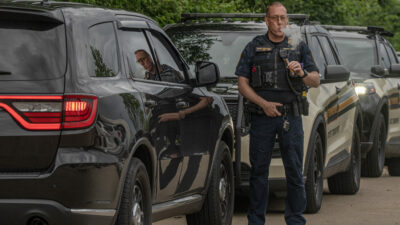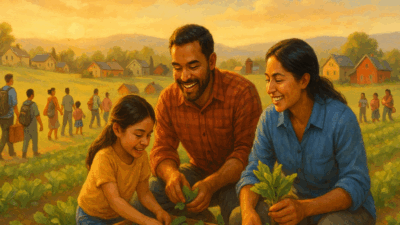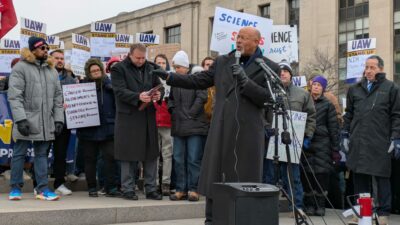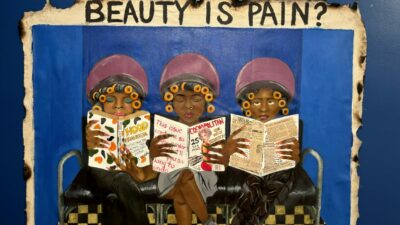From a certain point onward there is no longer any turning back. That is the point that must be reached. — Franz Kafka, “The Trial”

LVIV, UKRAINE — The brothers met on a chilled January evening in 2014 to walk their dogs through the Lviv neighborhood where they lived. Serhiy Verbytskyi hoped to persuade his younger sibling, Yuriy, to delay his trip to Kyiv to join the swelling protests against Ukrainian President Viktor Yanukovych.
“Why don’t you wait until after Christmas?” Serhiy asked. Their families would gather in a few days for the Orthodox celebration. “Spend the time with us and then go.”
Yuriy held firm. “We have reached the point of no return,” he said. “Either the government destroys us, or we destroy it.”
He acted on his conviction and traveled to Independence Square in Kyiv, taking his place alongside tens of thousands of fellow protesters who braved bitter winter cold and riot police to demand Yanukovych’s ouster. Dubbed the Euromaidan, the uprising had erupted after the president scuttled a pact to strengthen economic ties between Ukraine and the European Union, opting instead for a closer alliance with Russia.
His grip on power slipping, Yanukovych, viewed by the West and vast numbers of Ukrainians as a Kremlin pawn, resorted to violence in a futile effort to crush the popular revolt. In the weeks before he fled the country that February, the secret police under his command killed more than 100 protesters, a group since memorialized as the “Heavenly Hundred.”
The first to die was Yuriy Verbytskyi, and his murder at age 50 turned the amiable seismologist into a national symbol of Ukraine’s struggle for freedom. Eight years later, with the benefit of hindsight, the unlikely martyr can be viewed in another light — as the first casualty in Vladimir Putin’s forever war against Ukraine.
“Some people ask me whether his death was worth it. I say to them, ‘Is freedom worth it? Is democracy worth it? Is Ukraine worth it?’”
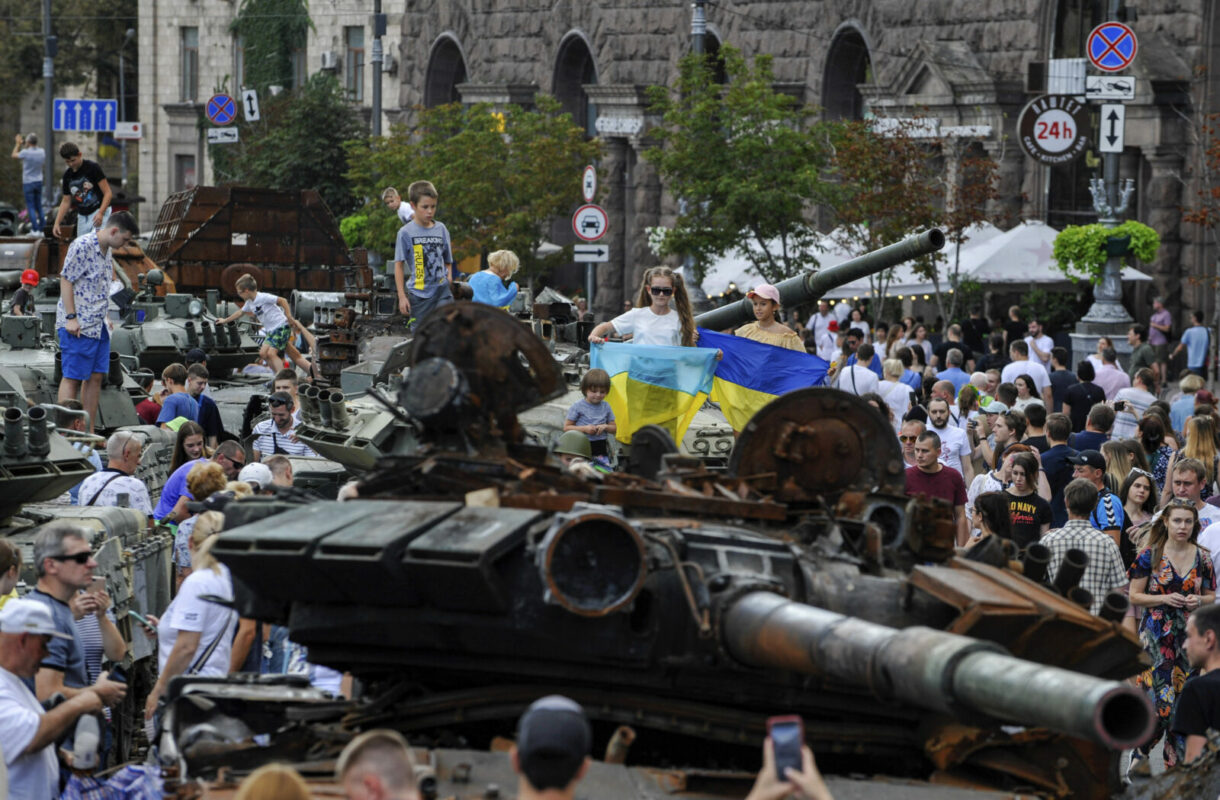
I brought up the Russian president when I met Serhiy on a warm, bright morning last month in Lviv. I wanted to know whether he had any inkling that his brother’s killing portended Russia’s years-long siege of Ukraine.
“If you had asked me then, I would have told you ‘No,’” he said. We sat outside a café on the town square a mile from Lychakiv cemetery, where Yuriy lays buried. “But the truth is, deep in my mind, deep in my soul, I understood that Russia one day would try to take all of Ukraine.”
The Verbytskyi brothers grew up near Ivano-Frankivsk, 80 miles south of Lviv, in a household with deep allegiance to Ukraine — and equal disdain for Russia — at a time when the Soviet Union controlled the country.
They learned the long history of Russia’s oppression of their people and heard stories about the fatal patriotism of their grandfathers. According to family lore, both fought in World War II with Ukraine’s independent military against the Red Army. One died in combat; the other succumbed in a Siberian labor camp in the 1950s.
Six years older than his late brother, Serhiy, 64, recalled that their mutual interest in geology steered them toward careers as seismologists with the National Academy of Sciences of Ukraine. Yuriy’s ardor for the outdoors extended to climbing mountains, and, when time allowed, he escaped the office to summit peaks across the Carpathian and Caucasus ranges.
His decision to join the Euromaidan in January 2014 exemplified both his love of country and the quiet resolve that made him a skilled alpinist. He saw Yanukovych’s spurning of the EU as a betrayal of Ukraine that required a response beyond voicing informed frustration.
“Yuriy wasn’t a radical,” Serhiy said. “He was a scientist — a man of principle.”
He died for his beliefs. A rubber bullet fired by riot police struck him in the face on the afternoon of Jan. 21, 2014.
“He died for the same reason that people are dying now — to protect our country and our democracy.”
Ihor Lutsenko, a Kyiv activist and journalist, escorted Yuriy to a nearby hospital for treatment. In the evening, Lutsenko later told reporters, several unidentified men loyal to Yanukovych abducted the pair and drove them to a wooded area outside Kyiv. Hours of interrogation and torture followed.
Lutsenko recounted that the captors intensified their beatings of Yuriy after learning he had traveled from Lviv, known for its resistance to Russia tracing back centuries. The assailants later separated the two men and dumped them in different areas of the forest. A badly injured Lutsenko dragged himself to safety in the dark. Yuriy, his ribs shattered and his sternum cracked, froze to death in the snow.
Serhiy continues to receive invitations to share his brother’s story with elected officials, university students and other groups. The lasting interest attests to Yuriy’s hallowed status.
“Some people ask me whether his death was worth it,” Serhiy said. “I say to them, ‘Is freedom worth it? Is democracy worth it? Is Ukraine worth it?’”
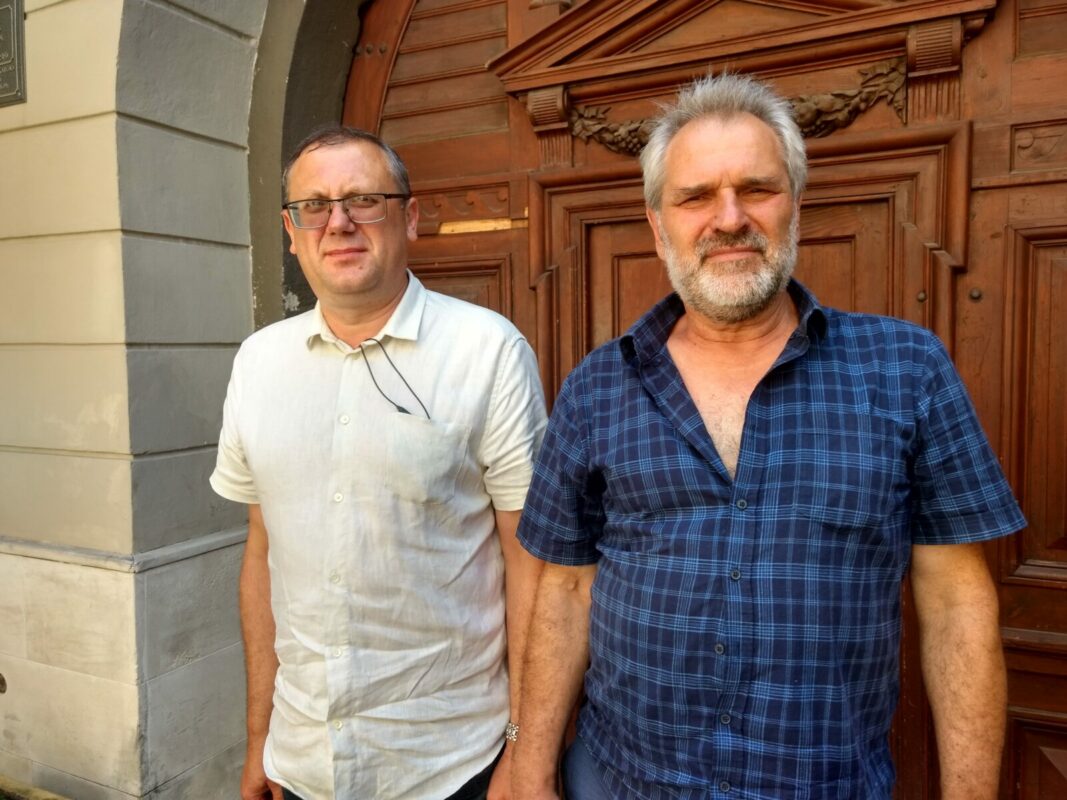
A line eight years long connects Yuriy’s murder and the Russian invasion that began this past February.
In the days after the Revolution of Dignity forced Yanukovych from power, Putin annexed Crimea and Russian-backed separatists seized part of eastern Ukraine. The fighting between militants and Ukrainian forces in the east persisted at varying levels through some two dozen ceasefires as the West refused to intervene year after year — an endless green light through which Russian tanks rolled in February.
In a similar sense, a line connects Yuriy’s devotion to his homeland and the fierce response of Ukrainian troops and civilians to the Russian onslaught.
When I met Serhiy in Lviv, he was accompanied by Vasyl Prokopyshyn, a friend and colleague of the Verbytskyi brothers. He had gone to Kyiv in early 2014 to join Yuriy and other cohorts on the Maidan.
“He died for the same reason that people are dying now — to protect our country and our democracy,” Prokopyshyn said. “We are peaceful; we don’t want to fight. But we will fight, because this country belongs to us.”
Putin’s war of choice has exacted a terrible toll on Ukraine. When I first saw Yuriy Verbytskyi’s grave in early March, days after Russian troops poured en masse over the border, Ukrainian soldiers from the Lviv region had yet to come home in coffins. Returning to the city a few weeks ago, I found that a new section of Lychakiv cemetery had been created outside its walls. Long rows of crosses mark the graves of dozens of fallen soldiers.
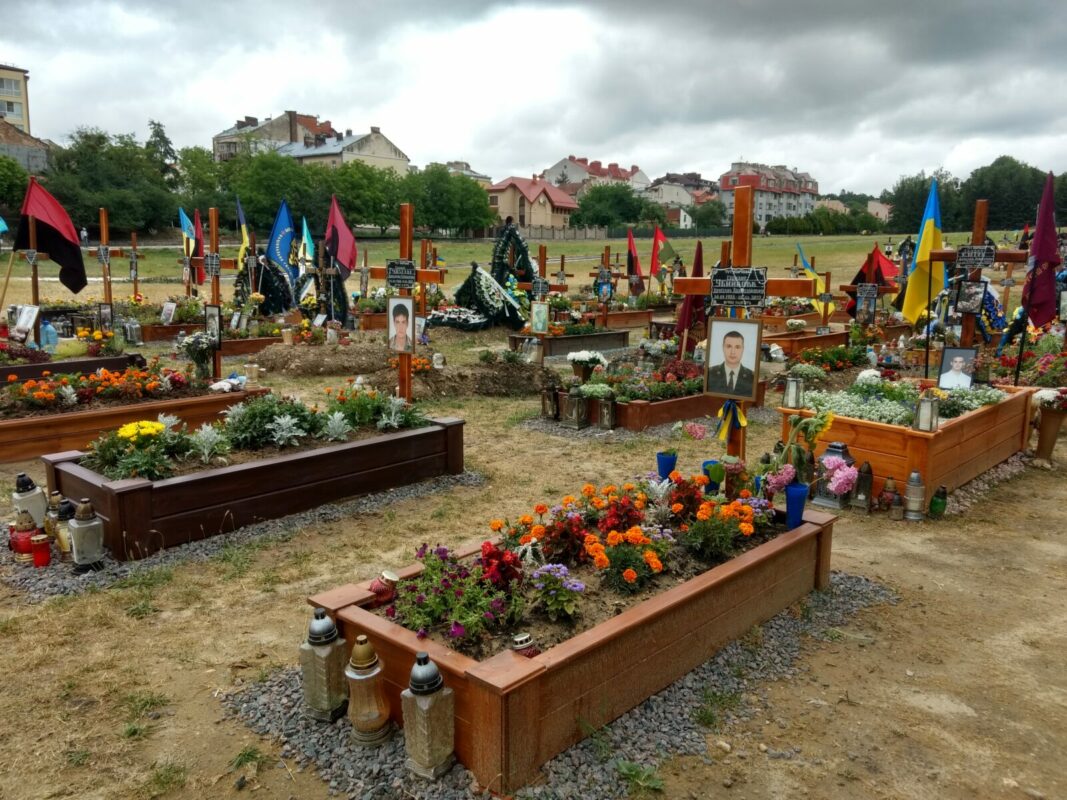
Still, as the tide of bloodshed rises, the Russian invasion has failed to deter Ukrainians any more than did the deaths of Yuriy and his Heavenly Hundred compatriots eight years ago. Serhiy remains as unsurprised by their collective will as by his brother’s individual courage.
“I know two things,” he said, smiling with a warmth I recognized from photos of Yuriy. “This is going to be a long war — and Ukraine is going to exist no matter what.”
Editor’s note: After a period of illness, Serhiy Verbytskyi passed away Sept. 4, 2022.

